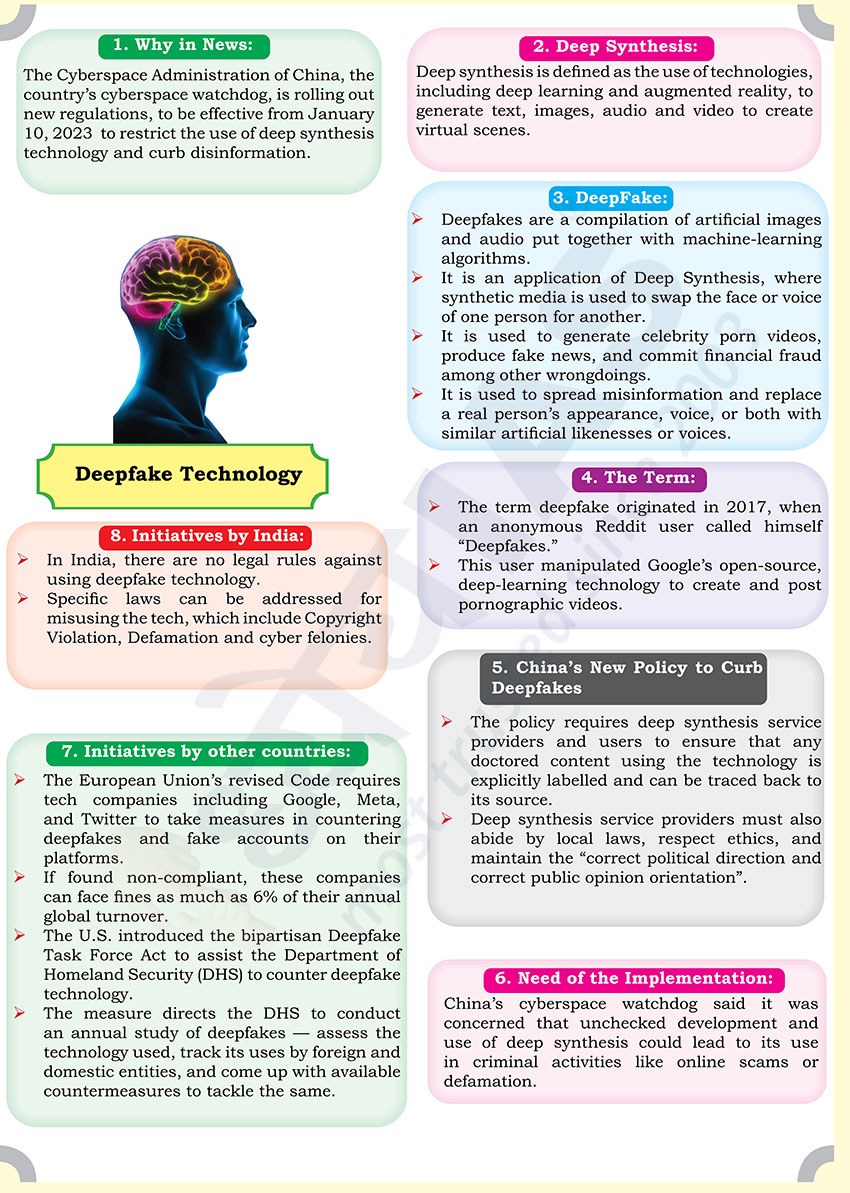Brain-booster
/
13 Jan 2023
Brain Booster for UPSC & State PCS Examination (Topic: Deepfake Technology)

Why in News?
- The Cyberspace Administration of China, the country’s cyberspace
watchdog, is rolling out new regulations, to be effective from January 10,
2023 to restrict the use of deep synthesis technology and curb
disinformation.
Deep Synthesis:
- Deep synthesis is defined as the use of technologies, including deep
learning and augmented reality, to generate text, images, audio and video to
create virtual scenes.
DeepFake:
- Deepfakes are a compilation of artificial images and audio put together
with machine-learning algorithms.
- It is an application of Deep Synthesis, where synthetic media is used to
swap the face or voice of one person for another.
- It is used to generate celebrity porn videos, produce fake news, and
commit financial fraud among other wrongdoings.
- It is used to spread misinformation and replace a real person’s
appearance, voice, or both with similar artificial likenesses or voices.
The Term:
- The term deepfake originated in 2017, when an anonymous Reddit user
called himself “Deepfakes.”
- This user manipulated Google’s open-source, deep-learning technology to
create and post pornographic videos.
China’s New Policy to Curb Deepfakes
- The policy requires deep synthesis service providers and users to ensure
that any doctored content using the technology is explicitly labelled and
can be traced back to its source.
- Deep synthesis service providers must also abide by local laws, respect
ethics, and maintain the “correct political direction and correct public
opinion orientation”.
Need of the Implementation:
- China’s cyberspace watchdog said it was concerned that unchecked
development and use of deep synthesis could lead to its use in criminal
activities like online scams or defamation.
Initiatives by other countries:
- The European Union’s revised Code requires tech companies including
Google, Meta, and Twitter to take measures in countering deepfakes and fake
accounts on their platforms.
- If found non-compliant, these companies can face fines as much as 6% of
their annual global turnover.
- The U.S. introduced the bipartisan Deepfake Task Force Act to assist the
Department of Homeland Security (DHS) to counter deepfake technology.
- The measure directs the DHS to conduct an annual study of deepfakes —
assess the technology used, track its uses by foreign and domestic entities,
and come up with available countermeasures to tackle the same.
Initiatives by India:
- In India, there are no legal rules against using deepfake technology.
- Specific laws can be addressed for misusing the tech, which include
Copyright Violation, Defamation and cyber felonies.







